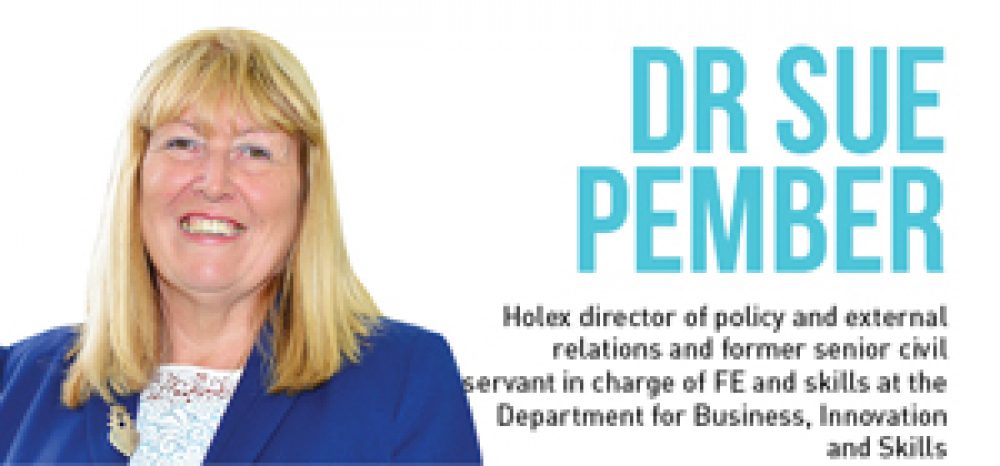Sue Pember casts her eye over the Ofsted 2014/15 annual report.
Ofsted’s mission statement is ‘raising standards and improving lives’ and that is certainly the focus of the 2014/15 annual report.
Chief Inspector Sir Michael Wilshaw was absolutely right to highlight the failure of many secondary schools and point out how the performance of secondary schools in the North is worse than those in the South.
I do worry though that poor schools in the South will think they are now off the hook. It is scandalous that the good work of primary schools is undermined and not followed through into secondary schools.
Shouldn’t we be encouraging Ofsted to get involved and help shape the activity when it is being developed rather than leaving it to when a programme is up and running?
However, this is not new. Ask any FE lecturer and they will tell you stories of bright youngsters who didn’t do well at secondary school but flourished when they went to college, and they tell you of the heartache they feel when they have to try to re-motivate a young person who has been turned off learning for five years, has completely lost confidence, and has to start back at the basics.
What is also interesting in the chief inspector’s report is that the North/South divide is not there for primary schools, or for colleges.
He also highlighted concerns related to the new study programmes and, in particular, the English and maths element.
I struggled to find in his report a comparison of how schools are doing compared to colleges, or any recognition that this element was always going to be very problematic. This is an area where we all need to work together and, if Ofsted has the answers, then course managers and lecturers must listen and respond.
But, this issue, did make me reflect on the role and timing of inspection.
In business and in manufacturing, inspection is key to quality control and the inspectors don’t just appear at the end of the process — they are in the mix from the start, making it clear what they will be looking for in the final inspection.
So shouldn’t we be encouraging Ofsted to get involved and help shape the activity when it is being developed rather than leaving it to when a programme is up and running and only then saying what they are looking for?
I don’t want to distract from the issue of improving quality, but I do feel this is what has happened on study programmes. Wouldn’t it have been more effective to detail the inspection criteria at the start?
I am worried that we may repeat this scenario again with apprenticeship standards and we will find ourselves in two or three years’ time with Ofsted offering their critical assessment of the new standards without having said in development stage anything about what they will be assessing.
There will be many hundreds of standards with different delivery patterns and many with different end tests/assessments — these could be about how to build a wall, completing a workplace project or sitting a viva voce.
Many of these will be delivered without being piloted. Therefore, it is vital that the quality measures/outcomes which the inspectors will be reviewing are determined now, otherwise we will undermine the policy and the inspectors will be back criticising apprenticeship quality in three years’ time.
The chief inspector was right to draw attention to the drop in adult learning participation. We need to do more and collectively we need to refocus our adult learning strategies. Our nation’s productivity is never going to improve unless we tackle the legacy workforce with poor basic skills. We need a sustained programme of adult English and maths courses in the work place and we need to share the cost between the state who failed them when they were at school and the employer.
Adult education is not a luxury but an essential service, to meet the demands made on it, it will need to grow in the future and our collective challenge is to ensure we provide the leadership and direction and not to let down those older learners who are relying on us. Therefore it was right to feature in the annual report and I hope that it now galvanises us all into establishing a new focus on adult learning.









Your thoughts